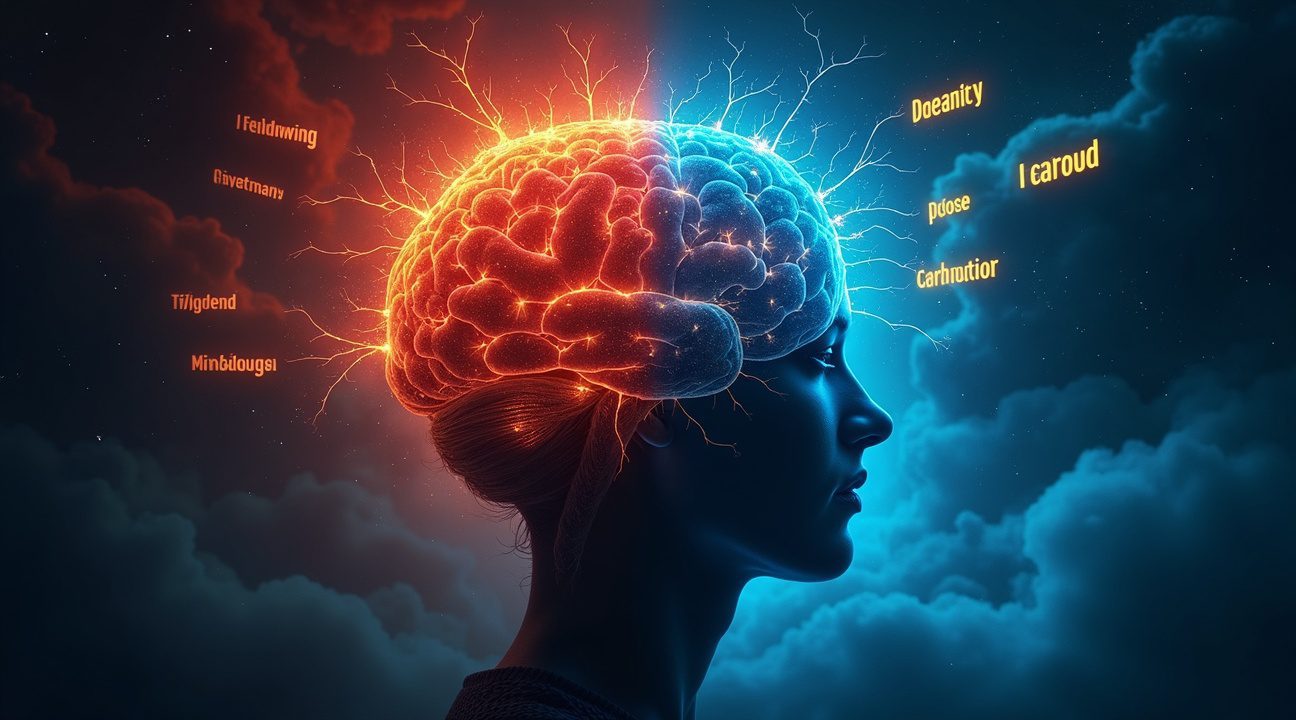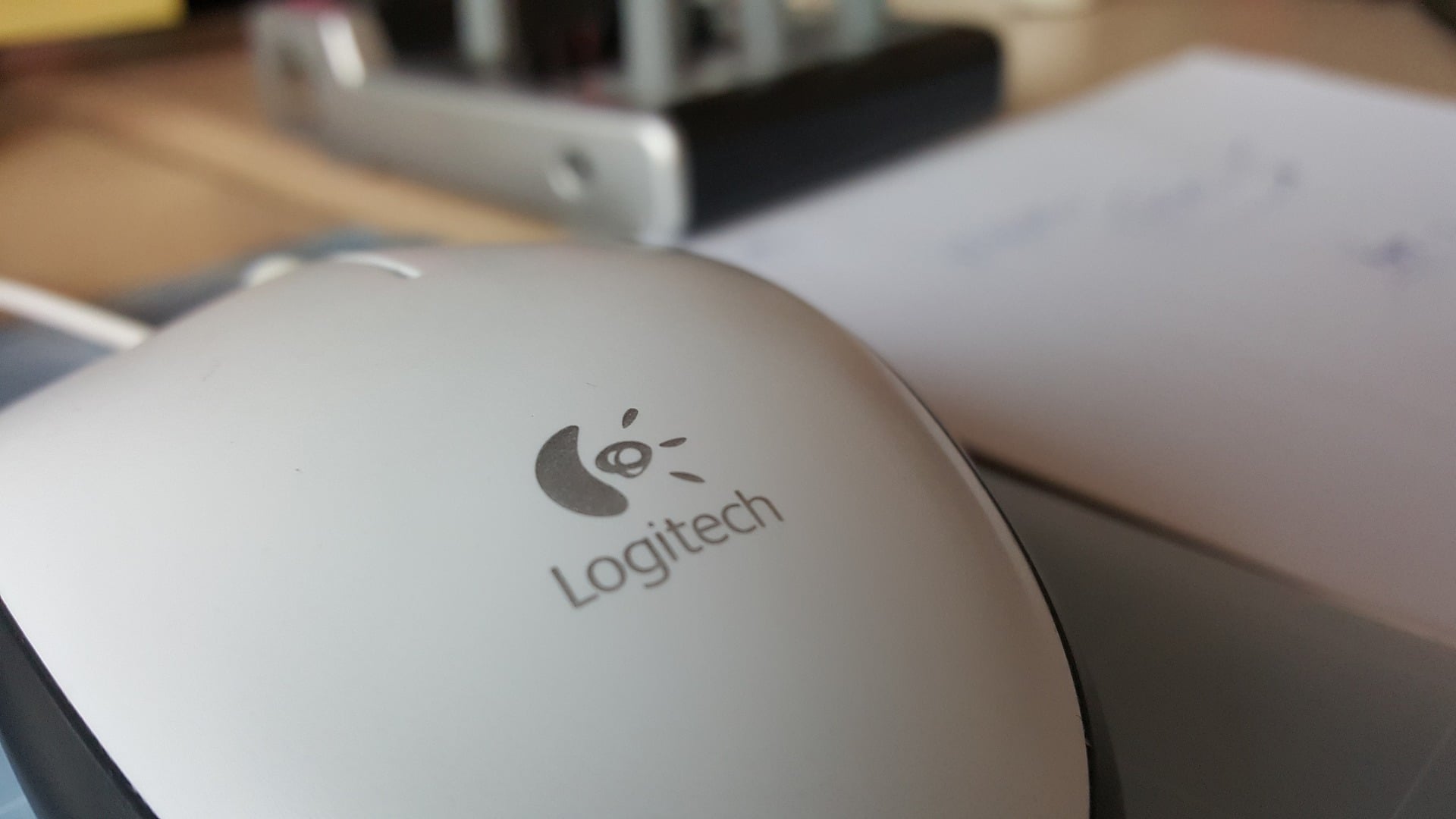Recent scientific discoveries reveal that the human brain responds to verbal insults much like it does to physical pain, generating long-lasting neural imprints while quickly discarding positive remarks.
Key Takeaways
- The brain processes insults within a mere 250 milliseconds, activating stress responses before conscious thought and creating lasting neural pathways.
- Insults produce stronger P2 amplitude readings in brain wave activity than compliments, a pattern consistent even after repeated exposure.
- Evolution has conditioned humans to prioritize negative stimuli as essential for survival, rendering positive feedback less urgent and less likely to be retained.
- The frontal cortex reacts intensely to verbal attacks, mirroring the neurological response to physical pain and helping to explain why a single insult can ruin an entire day.
- Understanding this inherent bias towards negativity is crucial for improving communication, as it suggests that multiple positive interactions are needed to offset a single negative one.
Implications for Communication
This new understanding of the brain’s preference for negative information can significantly shape how individuals and organizations approach conversations, feedback, and interpersonal interactions. It becomes evident that a single critical remark might outweigh numerous positive ones in its psychological impact, warranting a more thoughtful, counterbalanced approach to communication.
To explore further findings, the original study can be referenced through this peer-reviewed neuroscience article that details how verbal stimuli influence memory and emotion regulation.
Your Brain Treats Insults Like a Physical Slap to the Face
When someone hurls an insult, the brain doesn’t distinguish between verbal aggression and physical harm. Research reveals that harsh words trigger an immediate neurological response that’s remarkably similar to getting slapped across the face. This reaction happens so quickly that conscious thought can’t intervene to soften the blow.
The brain processes insults in just 250 milliseconds, creating an automatic response that bypasses rational thinking entirely. This lightning-fast reaction occurs regardless of who delivers the insult or even if it’s directed at someone else entirely. Even strangers in artificial laboratory settings can trigger this powerful response, demonstrating just how hardwired humans are to detect and respond to social threats.
Frontal Brain Activity Spikes During Verbal Attacks
The frontal regions of the brain show intense activity when processing insults, creating patterns that mirror physical pain responses. This neurological reaction persists even when people encounter the same insults repeatedly, suggesting that the brain doesn’t develop immunity to verbal attacks the way it might adapt to other stimuli. The emotional attention system remains hypervigilant, treating each insult as a fresh threat that demands immediate processing.
What makes this response particularly fascinating is its universality. Whether the insult comes from a loved one or a complete stranger, the brain’s alarm system activates with equal intensity. This suggests that social threats register as fundamental survival concerns, triggering ancient protective mechanisms that evolved to keep humans safe within group dynamics.
The intensity of this reaction explains why people often remember cruel comments for decades while struggling to recall kind words from just weeks ago. Memory processing prioritizes threats over positive experiences, creating an imbalanced emotional landscape where negativity dominates long-term recall.
This neurological response also explains why insults can derail entire conversations or ruin someone’s day instantly. The brain treats verbal aggression as an emergency, flooding the system with stress hormones and redirecting cognitive resources away from other tasks. Unlike compliments, which the brain processes more casually, insults demand immediate and sustained attention.
The research demonstrates that even witnessing someone else receive an insult can trigger similar brain activity patterns. This suggests that humans are naturally attuned to social conflicts, perhaps as an evolutionary adaptation to monitor group dynamics and potential threats to their own standing.
Understanding this neurological reality can help people recognize why certain words carry such lasting power. Bad experiences stick because the brain is designed to prioritize survival over happiness, creating a natural bias that favors threat detection over positive recognition.
The persistence of this response, even after repeated exposure, highlights why workplace bullying or relationship conflicts can cause such lasting psychological damage. Each insult reactivates the same intense neurological pathways, preventing habituation and maintaining the emotional impact over time.
This knowledge also reveals why recovery from verbal abuse can take so long. The brain doesn’t simply get over insults the way it might adapt to other repeated stimuli. Instead, each harsh word continues to register as a legitimate threat, maintaining its power to disrupt emotional equilibrium and trigger stress responses.
The 250-millisecond processing time means that damage occurs before conscious defenses can activate. By the time someone realizes they’ve been insulted and attempts to rationalize or dismiss the comment, their brain has already recorded it as a significant threat and begun the process of encoding it into long-term memory storage.

The 79-Person Study That Reveals How Our Minds Really Work
A groundbreaking study involving 79 female participants has uncovered disturbing evidence about how differently our brains process negative versus positive feedback. Researchers exposed these women to 180 carefully crafted statements – a mix of insults, compliments, and neutral comments – while monitoring their neurological responses in real-time.
The experimental setup involved participants listening to these statements read aloud while scientists tracked their brain activity using electroencephalography (EEG) technology. Simultaneously, researchers measured skin conductance to capture the body’s physiological reactions to each type of statement. This dual approach provided unprecedented insight into how the brain processes emotional information.
Brain Wave Patterns Reveal Startling Differences
The results painted a stark picture of cognitive bias. Insults consistently produced stronger P2 amplitude readings in event-related potentials (ERP), which scientists recognize as a reliable marker of attention and rapid emotional processing. Even more concerning, this heightened response didn’t diminish with repeated exposure to negative statements.
The brainwave response measurements demonstrated that insults triggered both stronger and longer-lasting brain activity compared to compliments. While positive feedback generated measurable neural activity, the intensity and duration paled in comparison to the brain’s reaction to criticism or negative comments. This finding suggests our neural circuitry is hardwired to prioritize threatening or negative information over positive reinforcement.
Scientists observed that participants’ brains remained highly alert and responsive to insults throughout the entire testing period. The P2 amplitude – essentially the brain’s early warning system – stayed elevated whenever negative statements were presented. Conversely, compliments failed to maintain the same level of neural engagement, with brain responses diminishing as the study progressed.
The EEG data revealed something particularly striking about memory formation patterns. Insults appeared to create deeper neural pathways, suggesting they become more firmly embedded in long-term memory storage. This aligns with broader research showing that negative experiences often overshadow positive ones in human recall.
Event-related potential measurements showed that the brain treats insults as high-priority information requiring immediate attention and processing resources. This evolutionary response likely served our ancestors well when distinguishing between social threats and acceptance meant survival. However, in modern contexts, this same mechanism can become counterproductive.
The skin conductance measurements provided additional evidence of the body’s heightened response to negative feedback. Participants showed increased stress responses that correlated directly with the stronger ERP readings, creating a feedback loop between emotional and physiological reactions.
Researchers noted that the artificial laboratory environment represents a significant limitation of their findings. Real-world social interactions involve complex factors like relationship dynamics, context, and personal history that could either amplify or modify these basic neural responses. The controlled setting, while scientifically valuable, can’t fully capture how brain processing works during actual interpersonal conflicts or praise.
The study’s focus on female participants also raises questions about whether these patterns hold true across different demographic groups. Gender differences in emotional processing and social sensitivity could influence how insults versus compliments are neurologically processed and retained.
Despite these limitations, the research provides compelling evidence that our brains are fundamentally wired to give negative information preferential treatment. The persistent P2 amplitude responses to insults, combined with weaker reactions to compliments, suggest that overcoming this bias requires conscious effort and potentially specific strategies.
Understanding these neural patterns helps explain why memory formation differs so dramatically between positive and negative experiences. The stronger event-related potentials associated with insults create more robust memory traces, making negative feedback significantly more likely to stick in our minds long-term. This neurological reality has profound implications for personal relationships, workplace dynamics, and self-esteem development.

Why Compliments Fade But Insults Stick Forever
I’ve always wondered why a single harsh comment can ruin my entire day, while dozens of compliments barely register. Recent research reveals that this isn’t just a quirk of human psychology—it’s hardwired into how our brains process and store different types of emotional information.
The Brain’s Unequal Response System
Compliments trigger weaker neural responses compared to insults, creating a fundamental imbalance in how we process feedback. While both positive and negative comments generate stable brain activity patterns over time, insults consistently produce significantly larger effects that maintain their intensity even through repetition. This means that every time someone recalls an insult, it hits with nearly the same force as the original experience.
The repetition effect works differently for positive and negative stimuli. Brain processes memories in ways that favor negative information, ensuring that hurtful words don’t lose their sting through repeated exposure. Compliments, on the other hand, may register initially but lack the neural punch needed to create lasting impressions.
Long-Term Memory’s Negative Bias
Laboratory studies can’t directly measure memory formation across years, but they reveal something equally telling: the unchanged strength of brain reactions to repeated insults supports broader memory research showing that negative experiences receive priority treatment in long-term memory formation.
When I encounter negative words, my brain retrieves them from long-term memory almost instantly. These words grab cognitive resources with far greater intensity than positive words, creating a processing advantage that ensures insults stick while compliments slip away. This isn’t a design flaw—it’s an evolutionary feature that helped our ancestors survive by remembering threats and criticism that could impact their safety or social standing.
The implications extend beyond individual psychology. Understanding why complex brain behaviors favor negative information helps explain everything from workplace dynamics to relationship patterns. While we can’t completely override this neural bias, recognizing it allows us to consciously work against our brain’s tendency to dismiss compliments and amplify criticism.
This research suggests that creating lasting positive memories requires more intentional effort and repetition than we might expect, while negative experiences embed themselves effortlessly into our long-term storage systems.
The Evolutionary Reason Your Brain Obsesses Over Negativity
I’ve discovered that research identifies a powerful negativity bias hardwired into human cognition. This bias ensures negative words and experiences receive priority over positive ones in attention, emotional response, and memory retention. The brain doesn’t process all information equally—it actively highlights threats while downplaying rewards.
Evolutionary psychology provides the answer to this puzzling phenomenon. Ancestors who maintained sharp awareness and memory of threats had better chances of survival. Social threats, including insults and harsh criticism, carried serious consequences in early human communities. Being ostracized or losing social standing could mean death, making it crucial to remember who posed social dangers. Memory formation developed to prioritize these survival-relevant negative experiences.
Positive events, while pleasant, didn’t require the same level of urgent attention. Compliments and praise rarely contained life-threatening information that needed immediate action or long-term storage. The brain allocated fewer resources to processing and retaining these experiences because they posed no immediate threat to survival.
How Negativity Bias Shapes Modern Social Interactions
This ancient survival mechanism continues to influence contemporary relationships and social dynamics. People naturally remember harsh words from years ago while struggling to recall recent praise. The brain’s threat-detection system treats insults as potential social dangers requiring vigilance and memory storage.
Several factors contribute to this modern manifestation of negativity bias:
- Insults trigger the brain’s alarm system, releasing stress hormones that enhance memory formation
- Social rejection activates the same pain centers as physical injury, creating lasting neural pathways
- Negative feedback receives more cognitive processing time than positive comments
- Bad experiences generate stronger emotional responses, making them more memorable
I find that understanding this bias helps explain why people hold grudges or replay critical comments repeatedly. The brain isn’t being irrational—it’s following millions of years of evolutionary programming that prioritized threat awareness over celebration. Modern humans inherit this cognitive architecture despite living in vastly different social environments than their ancestors.
This negativity bias affects workplace dynamics, romantic relationships, and family interactions. A single harsh comment can overshadow weeks of positive feedback. Brain research shows that conscious awareness of this bias represents the first step in managing its effects on daily life.

The Scientific Breakdown: What Happens Inside Your Head
When I examine what happens inside the brain during emotional processing, the differences between how we handle insults versus compliments become strikingly clear. EEG and ERP findings reveal a fascinating pattern that explains why negative feedback sticks with us far longer than positive reinforcement.
The moment someone delivers an insult, your brain produces a significant and consistent P2 ERP effect. This represents rapid, involuntary attention occurring within the first quarter-second after hearing those harsh words. I can see this immediate neurological response as your brain’s alarm system activating, treating the insult as critical information that demands processing resources.
Brain activity comparisons show dramatic differences between insults and compliments. Insults produce high P2 amplitude paired with intense frontal activity, creating a neurological storm that captures your attention completely. Meanwhile, compliments register a much lower P2 response with notably muted effects. Your brain essentially treats positive feedback as less urgent information, processing it with significantly less intensity than negative input.
How Your Brain Prioritizes Different Types of Feedback
The attention capture mechanisms reveal why insults feel so immediately powerful. These negative comments create an automatic response that bypasses conscious control, forcing your brain to focus on the perceived threat. Compliments generate stable responses but lack the intensity needed to create lasting impressions. This explains why someone can shower you with praise all day, yet one critical comment will dominate your thoughts for hours.
Research on repetition effects shows another critical difference:
- Insults demonstrate little to no decrease in brain reaction over time, meaning your neural response stays strong even when you hear similar criticisms repeatedly.
- Compliments remain stable but prove less memorable, failing to create the deep neural pathways that lead to long-term memory formation.
Memory retention patterns further illuminate this disparity. Your brain enhances and prioritizes insulting information, treating it as survival-relevant data that must be stored for future reference. This process connects to our evolutionary past, where remembering threats and social rejection could mean the difference between acceptance and isolation from the group. Compliments, while pleasant, don’t trigger the same survival mechanisms and become more easily forgotten as your brain allocates resources elsewhere.
The frontal cortex activity during insult processing shows increased engagement in areas responsible for threat assessment and emotional regulation. I observe heightened activity in regions that monitor social standing and potential dangers to self-concept. When someone compliments you, these same areas show minimal activation, suggesting your brain doesn’t interpret positive feedback as requiring the same level of cognitive resources.
This neurological bias extends beyond immediate processing into long-term storage systems. The enhanced encoding of negative information means insults get filed away with multiple retrieval cues, making them easier to recall later. Your brain creates stronger associative networks around negative experiences, linking them to emotions, physical sensations, and environmental details. Compliments receive weaker encoding, with fewer retrieval pathways and less emotional tagging.
Understanding these brain mechanisms helps explain why people often struggle with self-esteem despite receiving regular positive feedback. The neurological deck appears stacked against remembering good things about ourselves, while negative information receives VIP treatment in our mental filing system.
The P2 ERP effect demonstrates how quickly this bias kicks in. Within 200 milliseconds of hearing an insult, your brain has already begun the enhanced processing sequence that will likely cement those words in memory. Compliments simply don’t trigger this rapid-fire neural response, leaving them vulnerable to the normal forgetting processes that clear out less important information.
This research reveals why negative experiences stick with such persistence while positive moments fade. Your brain treats criticism as high-priority data requiring immediate attention and long-term storage, while treating praise as lower-priority information that doesn’t warrant the same neurological investment.

How This Changes Everything You Know About Communication
I’ve discovered something that completely reshapes how we should approach every conversation. The way our brains process negative versus positive language isn’t just a minor preference – it’s a fundamental difference that affects how the brain processes memories for years to come.
Existing reviews in memory science consistently show that negative experiences create deeper, more lasting impressions than positive ones. When someone receives an insult, the brain treats it like a mini slap in the face, immediately activating stress responses and flooding the system with hormones that cement the memory. This biological reaction explains why criticism from a teacher in third grade can feel as fresh as yesterday, while last week’s compliment has already started to fade.
The Cognitive Resource Drain
Emotional and cognitive interactions reveal that negative words consume far more mental energy than positive ones. The brain essentially hijacks its processing power when confronted with harsh language, which creates several immediate communication implications:
- Negative feedback requires significantly more cognitive resources to process
- Insults trigger the brain’s threat detection system, making logical responses more difficult
- Positive reinforcement gets filtered through less intensive neural pathways
- The emotional attention devoted to criticism overshadows praise by a massive margin
This research fundamentally changes how I approach difficult conversations. When delivering feedback, the timing and delivery method become critical factors. A single harsh comment can overshadow weeks of positive reinforcement, creating an imbalanced perception that affects why people remember bad experiences more vividly.
The negativity bias hardwired into our neural architecture means that communication strategies must account for this uneven playing field. Constructive criticism needs to be carefully balanced with multiple positive touchpoints to counteract the brain’s natural tendency to amplify negative input. Understanding that the brain functions with this built-in imbalance allows for more effective relationship building and conflict resolution.
Professional relationships, personal connections, and even self-talk patterns all operate under these same neurological rules. The person who remembers every slight but forgets every compliment isn’t being dramatic – they’re experiencing normal brain function. This knowledge transforms how we frame conversations, deliver feedback, and build long-term trust with others.

Sources:
ScienceAlert, “Spoken Insults Stir Up More Brain Activity Than Compliments And Linger For Longer Too”
Study Finds, “Verbal insults hit our brains like a ‘mini slap in the face'”
Neuroscience News, “Verbal Insults Trigger a ‘Mini Slap to the Face'”
Earth Attractions, “Why a Single Insult Can Haunt You for Years – and What Your Brain …”


